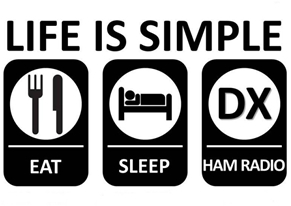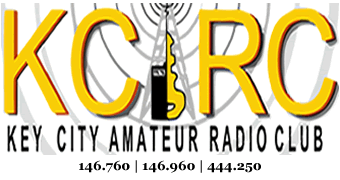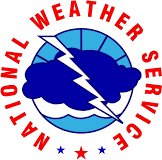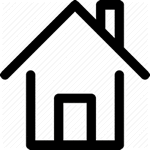
What is Amateur Radio?
ANSWER:
Amateur Radio (Ham) is a popular hobby and service that brings people, electronics and communication together. People use ham radio to talk across town, around the world, or even into space, all without the Internet or cell phones. It’s fun, social, educational, and can be a lifeline during times of emergency.
You can set up a ham radio station practically anywhere!
in a field…
in an automobile…
in an RV…
in a home…
Although Amateur Radio operators get involved for many reasons, they all have in common a basic knowledge of radio technology and operating principles, and pass an examination for the FCC license to operate on radio frequencies known as the “Amateur Bands.” These bands are radio frequencies allocated by the Federal Communications Commission (FCC) for use by ham radio operators.
Amateur Radio is a non-commercial radio communication service whose primary aims are public service, technical training and experimentation, and communication between private persons. Amateur Radio operators are commonly called hams. Hams often communicate with each other recreationally, but also provide communications for others at public events or in times of emergency or disaster.
FCC rules now allow persons to obtain all classes of licenses without learning Morse code! If you have had a basic Physics or Electronics class, you may already know enough theory to pass the tests. If you haven’t had this kind of class, the material is extremely easy to learn on your own.
What does KCARC stand for?
ANSWER:
KCARC stands for Key City Amateur Radio Club. This local Amateur Radio organization is composed of students, military personnel, retirees and local residents of Abilene, Texas and the surrounding communities. The club meets monthly (except December) and has a weekly information radio net. The club participates in the nationwide summer Field Day event sponsored by Amateur Radio Relay League (ARRL) and various local public service communication events.
How do I join KCARC?
ANSWER:
Simply download and/or print the the new member application. You may bring your completed new member application to the next scheduled club meeting or mail it to Key City Amateur Radio Club, P.O. Box 2722, Abilene, Texas 79604. We look forward to meeting you!
Note: Membership in the KCARC is open to anyone interested in Amateur Radio. To be a voting member you must hold a valid Amateur Radio License from the Federal Communications Commission (FCC) and be current on your club dues. Dues are currently $15 a year for full membership and $20 a year for families residing in the same household. Dues cover the period from January 1st to December 31st and are prorated (new members only) for a partial year. The KCARC Treasurer will notify you of the cost of the new membership based on when you join.
Who can become a ham?
ANSWER:
In the USA, anyone who is not a representative of a foreign government can be an Amateur Radio operator. You do not have to be a citizen to obtain a license. There are tests that you must pass to get a license, however, the tests are not insurmountable. On that general level, the requirements are probably similar in almost every country.
How much does it cost to join the hobby?
ANSWER:
To take the exams for any class of amateur radio license, there is a small charge ($15.00 at the time of this writing) to cover copying costs and running the testing sessions. The cost of a radio is really dependent on what you want to do. You can make your own radio and antenna for under $150. You can buy a used single-band radio for $50-$300+. Or you can buy a new multi-band multi- mode radio with a lot of bells and whistles for $300-$3000+. If you want to learn more about ham radio, talk to local hams, find out what you want to do with ham radio first. Attending a local club meeting is a good place to start.
How do I become a Ham radio operator?
ANSWER:

Where can I take an Amateur Radio exam?
ANSWER:
All amateur license exams are given by three qualified Volunteer Examiners (VEs) who volunteer their time.
The KCARC has a team of VEs that try to give at least one exam session every other month. See scheduled dates and locations on this website. For additional information, please contact Ron Harden, WT5X – 325-513-3184
Abilene, Texas area VE exam testing sessions (date & time) posted on the website below.
http://www.arrl.org/find-an-amateur-radio-license-exam-session
Where can I find out more information about KCARC?
ANSWER:
On this website or by attending one of our monthly club meetings. Our monthly meetings are usually held at the Cobb Recreation Center located at 2302 State St., Abilene, Texas on the second Monday of the month (except December) at 7:00 pm.
There is also a weekly club Information Net on the clubs’ 146.76 repeater (tone 146.2). Information Nets are held every Thursday night at 8:00 pm (2000 hrs). Everyone is welcome to come to the meetings that is interested in amateur radio. All licensed amateurs are welcome to check into the club net. You do NOT have to be a member to attend the meetings or join the net (but we highly recommend membership).
What can I do with an Amateur Radio license?
ANSWER:
There are so many things, it’s a difficult question to answer, but here’s some ideas:
– talk to people in foreign countries
– talk to people (both local and far away) on your drive to work
– help in emergencies by providing communications
– provide communications in parades or walk-a-thons
– help other people become hams
– hook your computer to your radio and communicate by computers.
– collect QSL cards (cards from other hams) from all over the United States and foreign countries and receive awards
– participate in contests or Field Day events
– provide radio services to your local Civil Defense organization thru ARES (Amateur Radio Emergency Service)
– aid members of the U.S. military by joining MARS (Military Affiliate Radio System)
– participate in transmitter hunt games and maybe build your own direction-finding equipment
– have someone to talk to on those sleepless nights at home.
– receive weather pictures via satellites
– build radios, antennas, learn some electronics and radio theory
– send and receive live television pictures
Are there things I cannot do with an Amateur Radio license?
ANSWER:
The most important thing you can’t do is transact business of any kind over ham radio (under new FCC rules, some types of personal business transactions are now allowed, however, there are still major limitations). Interference to other hams or services, as well as obscene, profane or indecent language is not tolerated and is illegal. Music and broadcasting are not allowed on ham radio.
Some personal conversations may not be appropriate to Amateur Radio. Do you really want the whole world to hear about Aunt Martha’s illnesses?
What are the current different U.S. Amateur Radio licenses and what can each of them do?
ANSWER:
Technician, General, and Amateur Extra (see information below)
Technician
The Technician class license is the entry-level license of choice for most new ham radio operators. To earn the Technician license requires passing a 35-question written examination on radio theory, regulations and operating practices. The license gives access to all Amateur Radio frequencies above 30 megahertz, allowing these licensees the ability to communicate locally and most often within North America. It also allows for some limited privileges on the HF (also called “short wave”) bands used for international communications.
General
The General class license grants some operating privileges on all Amateur Radio bands and all operating modes. This license opens the door to world-wide communications. Earning the General class license requires passing a 35-question written examination. General class licensees must also have passed the Technician written examination.
Amateur Extra
The Amateur Extra class license conveys all available U.S. Amateur Radio operating privileges on all bands and all modes. Earning the license is more difficult; it requires passing a thorough 50-question written examination. Amateur Extra class licensees must also have passed all previous license class written examinations.
What are the National VHF and UHF Call In frequencies?
ANSWER:
2-meter (VHF) band
146.520 MHz
440 MHz/70cm (UHF) band
446.000 MHz
What does the term CQ mean?
ANSWER:
Calling all stations
CQ is primarily used on HF (shortwave) amateur radio frequencies
i.e. CQ, CQ, CQ – this is [your call sign]



 KCARC meets the 2nd Monday of the month [except December] at 7:00 pm.
KCARC meets the 2nd Monday of the month [except December] at 7:00 pm.